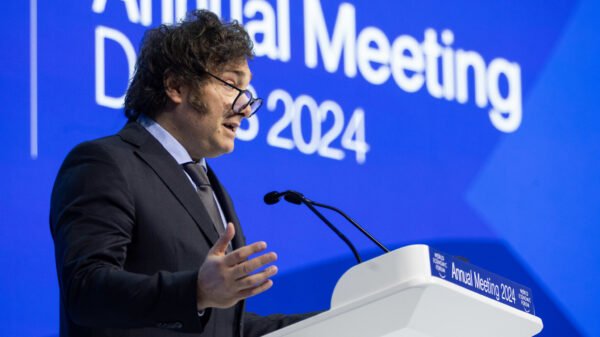Argentines strike against spending cuts: Numerous businesses, including schools and banks, closed their doors as part of a nationwide national strike that rocked Argentina. The transportation sector was also hit hard by the disruption. Train and metro services came to a standstill, and only a limited bus service was able to continue operating. The coordinated demonstration, spearheaded by influential union leader Hector Daher, sent a strong message to President Javier Milei, calling for a reassessment of the severe cuts to social programs and subsidies.
After assuming office in December, President Milei has led a number of austerity measures, expressing his support for right-wing economic ideals represented by his campaign symbol of a chainsaw. His argument rests on the critical importance of reducing Argentina’s soaring public deficit and reining in the country’s exorbitant inflation rate, which is now topping the charts at about 300% per year.

EPA-EFE/REX/Shutterstoc
The walkout was a sobering reminder of the growing discontent among all parts of society, even if Milei maintained that his measures were necessary. Despite the administration’s claims of accomplishments, such as a recent decline in inflation, critics contend that the economy is in a worse state than it appears due to the slump.
Quickly describing the walkout as “purely political” and emphasizing the negative effects on the people, the government responded to the strike as it had happened. On the other side, Milei’s measures, according to union officials, make things worse for regular people and bring them closer to financial collapse.
Respected Argentine actor Viggo Mortensen was forthright in his criticism of Milei’s administration, calling it a “total disaster” and referring to the president as a “clown.” Such feelings highlight the widespread dissatisfaction felt by the general public, as shown in the accounts of people like bingo vendor Cacho, who bemoaned the impact of the strike on his income.

EPA
Even while there is some underlying discontent, polls show that Milei still has a sizable following in Argentina. But his opponents, notably Cristina Fernández de Kirchner, his predecessor, see his policies as a pointless price the people must pay.
Milei is unwavering in his defense of his actions, which he says are necessary to save Argentina’s economy from certain doom. He frames his initiatives as an inevitable cost of achieving long-term stability, arguing that inflation is the most serious problem facing the public.

Reuters
This seismic blow has left Argentina at a crossroads, with opposing ideas for the country’s economic future threatening to derail its recovery efforts. Everyone from the halls of power to the streets is wondering whether Milei’s austerity campaign will bring prosperity or additional instability to the country.








































Comment Template